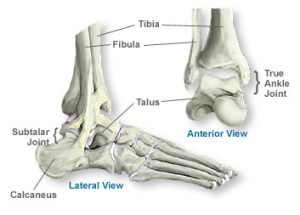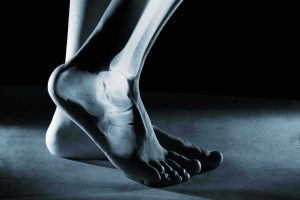Clubfoot
A term that encompasses a variety of foot deformities, clubfoot describes any contortion of the foot due to under developed tissues. Under developed tissues in the foot have a shorter length and therefore contract, creating a deformed appearance. Individuals suffering from clubfoot typically have clubfoot at birth, either in one or both feet. Relatively half of individuals with clubfoot have clubfoot in both feet.
Individuals at risk for clubfoot
Unfortunately individuals cannot prevent developing clubfoot. Risks for developing clubfoot include:
- Gender: Doctors predominately see clubfoot in males rather than females
- Family History
- Congenital Conditions
- Factors with the pregnancy: A mother who smokes or drinks alcohol during pregnancy can lead to a baby developing clubfoot.
- Not enough amniotic fluid in the sac
Symptoms of clubfoot
Children typically do not feel pain associated with clubfoot until they start walking. In most cases, children undergo surgery to fix clubfoot before they start walking.
- A distorted leg
- A leg shorter than the other
- Underdeveloped muscles in the affected leg
Diagnosing and Treating clubfoot
In certain cases of clubfoot, doctors can see the clubfoot on an ultrasound of the pregnant mother. While a surgeon does not do surgery on the fetus for clubfoot, preparing to decide how and when to treat it can alleviate some stress on the parents.
Doctors prefer treating clubfoot in children a week or two after birth. At birth, babies’ joints and bones remain soft and not yet fully developed. This works to the advantage of the doctors, allowing them to perform treatment early on before it has any major effects on the child’s life. To treat clubfoot, doctors either stretch and cast the foot or perform surgery.
During stretching and casting, a pediatric orthopedist maneuvers the child’s foot into the correct position and places the foot into a cast. The foot and ankle specialist repeats this process once a week until they achieve the correct alignment. Right before achieving the correct alignment, the doctor performs a small surgery on the patients foot to surgically lengthen to Achilles tendon.
To maintain the proper alignment, the baby must participate in a stretching regimen (or physical therapy), and wear proper shoes and braces. Children typically need to follow these protocols for up to 3 years.
If a pediatric orthopedic surgeon cannot achieve a proper foot through stretching and casting, a surgeon opts for a more aggressive surgical intervention. Surgeons perform clubfoot surgery with the patient under general anesthesia. With a patient under general anesthesia, the patient remains asleep for the duration of the surgery and wakes once the surgeon completes the surgery. During surgery, the orthopedic specialist manually lengthens and repositions the tissues within the foot. After surgery, the child wears a cast for 2 months followed with a brace for at least a year.
To view a list of all insurances that AOA Orthopedic Specialists accept, click HERE. To schedule an appointment online, click HERE.
Call our 24/7 hotline at 817-375-5200 to schedule an appointment with an orthopedic specialist today!

